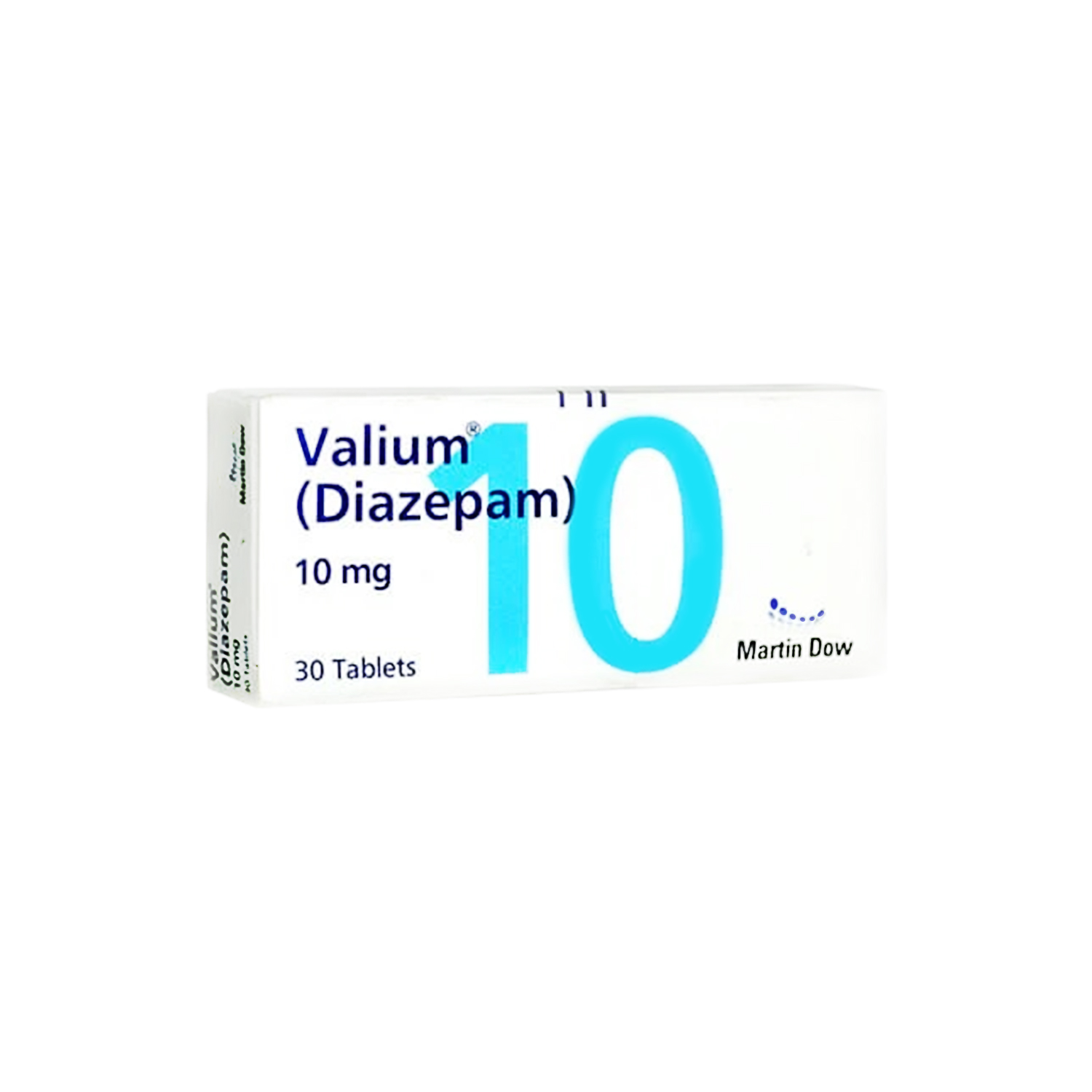Description
Introduction
valium diazepam 10mg is for Anxiety, a common mental health condition that affects millions of people worldwide. It can manifest as persistent worry, fear, or nervousness and severely impact daily life. In some cases, anxiety can also lead to sleep disorders such as insomnia and sleeplessness, further exacerbating the problem. Valium, also known by its generic name Diazepam, is a medication widely used to treat anxiety, reduce insomnia, and manage sleeplessness. This blog will provide a comprehensive overview of Valium, its uses, benefits, and potential side effects, as well as important considerations for those considering this medication.
What is Valium (Diazepam)?
Understanding Valium and Its Purpose
Valium (Diazepam) is a benzodiazepine, a class of medications known for their calming effects on the brain and nervous system. Originally developed in the 1960s, Valium quickly became one of the most prescribed medications for anxiety and related conditions. It works by enhancing the effects of a neurotransmitter called gamma-aminobutyric acid (GABA), which helps to calm the brain and nervous system, reducing feelings of anxiety and promoting relaxation.
How Valium Works to Manage Anxiety
Valium works by binding to GABA receptors in the brain, increasing the inhibitory effects of GABA. This action helps to reduce the activity of nerve cells in the brain, leading to a calming effect. This makes Valium particularly effective for managing anxiety, as it helps to alleviate the symptoms of nervousness, tension, and fear that are common in anxiety disorders.
Valium for Anxiety: A Reliable Treatment Option
Managing Acute Anxiety
Valium is often prescribed for the treatment of acute anxiety, where symptoms are intense and need immediate relief. Because of its rapid onset of action, Valium can quickly reduce symptoms, helping individuals regain control over their emotions and behaviors. This makes it a valuable tool in situations where anxiety may be overwhelming, such as during panic attacks or severe stress.
Long-Term Anxiety Management
While Valium is highly effective for short-term use, it can also be prescribed for longer-term management of chronic anxiety disorders. However, due to the risk of dependence, it is usually recommended for short-term or intermittent use. Your healthcare provider may suggest using Valium in combination with other treatments, such as cognitive-behavioral therapy (CBT), to address the root causes of anxiety and develop healthier coping mechanisms.
Valium and Its Role in Reducing Insomnia and Sleeplessness
How Anxiety Leads to Insomnia and Sleeplessness
Anxiety and sleep disorders often go hand-in-hand. When a person is anxious, their mind can become overactive, making it difficult to relax and fall asleep. This can lead to insomnia, a condition where individuals struggle to fall asleep or stay asleep. Sleeplessness, or the inability to obtain adequate sleep, can further exacerbate anxiety, creating a vicious cycle that can be difficult to break.
Valium to Reduce Insomnia and Sleeplessness
Valium is often prescribed to help reduce insomnia and sleeplessness associated with anxiety. By calming the nervous system, Valium can make it easier for individuals to relax and fall asleep. It helps to reduce the time it takes to fall asleep (sleep onset latency) and can also increase the duration of sleep, leading to a more restful night.
Benefits of Using Valium for Sleep Disorders
Valium offers several benefits for those struggling with insomnia and sleeplessness:
- Rapid Onset: Valium works quickly, making it easier to fall asleep shortly after taking the medication.
- Improved Sleep Quality: By promoting relaxation, Valium helps improve the overall quality of sleep, leading to better rest and rejuvenation.
- Reduced Nighttime Awakenings: Valium can help reduce the frequency of waking up during the night, allowing for more continuous sleep.
Dosage and Administration of Valium (Diazepam)
Recommended Dosage for Anxiety
The dosage of Valium for anxiety varies depending on the severity of symptoms and the individual�s response to the medication. Typically, the starting dose ranges from 2 mg to 10 mg, taken two to four times daily. Your healthcare provider will determine the appropriate dosage based on your specific needs and may adjust it as necessary.
Dosage for Insomnia and Sleeplessness
When prescribed to reduce insomnia and sleeplessness, Valium is usually taken at bedtime. The typical dose for sleep disorders ranges from 5 mg to 15 mg, depending on the individual�s condition and response to the medication. It�s important to take Valium only as prescribed and not exceed the recommended dosage to avoid potential side effects and dependence.
Tips for Safe Usage
- Follow Prescriptions Carefully: Always take Valium exactly as prescribed by your healthcare provider to minimize the risk of side effects and dependence.
- Avoid Alcohol: Do not consume alcohol while taking Valium, as it can enhance the sedative effects and increase the risk of adverse reactions.
- Be Cautious with Activities: Due to its sedative effects, avoid activities that require full alertness, such as driving or operating heavy machinery, until you know how Valium affects you.
- Consult Your Doctor Before Stopping: If you need to stop taking Valium, talk to your doctor about a gradual tapering plan to avoid withdrawal symptoms.
Potential Side Effects of Valium
Common Side Effects
Like all medications, Valium can cause side effects. Common side effects include:
- Drowsiness
- Fatigue
- Dizziness
- Dry mouth
- Blurred vision
These side effects are generally mild and tend to diminish as your body adjusts to the medication. However, it�s important to monitor how you feel and consult your doctor if you experience any persistent or bothersome symptoms.
Serious Side Effects
In rare cases, Valium can cause more serious side effects, such as:
- Memory problems
- Confusion
- Depression
- Difficulty breathing
- Seizures
If you experience any of these serious side effects, seek medical attention immediately.
Long-Term Considerations and Risks
Risk of Dependence
One of the most significant risks associated with Valium is the potential for dependence, especially when used for extended periods. Valium can be habit-forming, and individuals may develop tolerance, requiring higher doses to achieve the same effect. To minimize the risk of dependence, Valium is usually prescribed for short-term use, and your healthcare provider will monitor your treatment closely.
Withdrawal Symptoms
If Valium is used for a prolonged period, discontinuing the medication suddenly can lead to withdrawal symptoms. These symptoms can include anxiety, agitation, irritability, and in severe cases, seizures. To avoid withdrawal symptoms, it�s important to follow your doctor�s instructions when tapering off Valium.
Alternative Treatments
While Valium is effective for managing anxiety and sleep disorders, there are alternative treatments available that may carry a lower risk of dependence. These include other medications, such as SSRIs (selective serotonin reuptake inhibitors), as well as non-pharmacological treatments like cognitive-behavioral therapy (CBT), mindfulness meditation, and lifestyle changes. Discussing these options with your healthcare provider can help you find the most suitable treatment plan for your needs.
Combining Valium with Other Therapies
Cognitive-Behavioral Therapy (CBT)
Cognitive-behavioral therapy (CBT) is a highly effective treatment for anxiety and insomnia. When used in combination with Valium, CBT can help address the root causes of anxiety and develop healthier coping mechanisms. Over time, CBT can reduce the need for medication and lead to long-term improvements in mental health and sleep quality.
Relaxation Techniques and Sleep Hygiene
Incorporating relaxation techniques, such as deep breathing exercises, progressive muscle relaxation, and guided imagery, can enhance the calming effects of Valium and improve sleep quality. Additionally, practicing good sleep hygiene�such as maintaining a regular sleep schedule, creating a relaxing bedtime routine, and minimizing screen time before bed�can help reduce insomnia and sleeplessness.
Conclusion
Valium (Diazepam) is a powerful medication for managing anxiety and sleep disorders like insomnia and sleeplessness. By calming the nervous system, Valium helps individuals find relief from anxiety, fall asleep more easily, and stay asleep longer. However, due to the potential for dependence, it�s important to use Valium under the guidance of a healthcare provider and to explore complementary therapies that can support your treatment.
If you�re considering Valium as a treatment option, consult with your doctor to determine if it�s the right choice for you. With the right approach, you can manage your anxiety and sleep disorders effectively, leading to a healthier and more fulfilling life.





